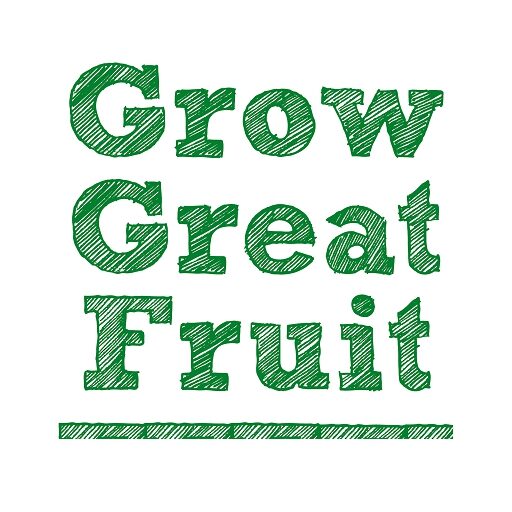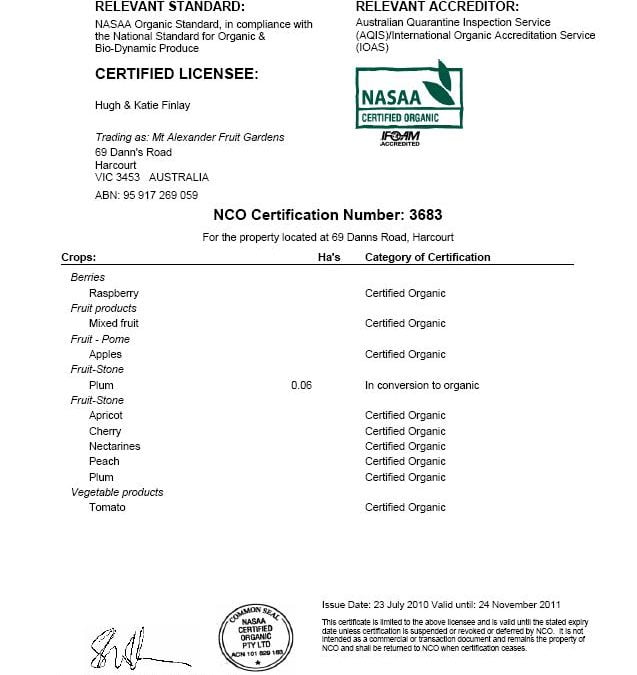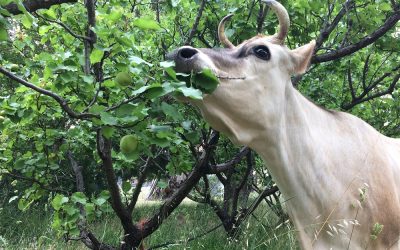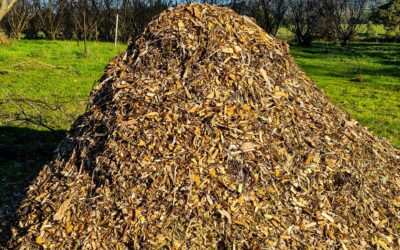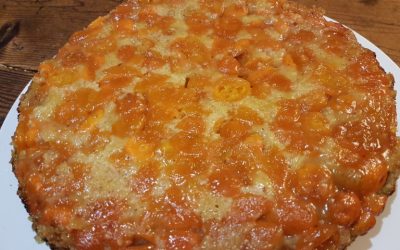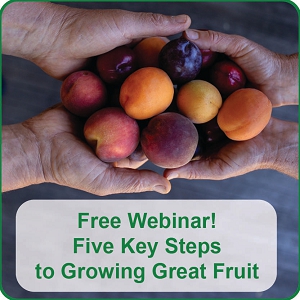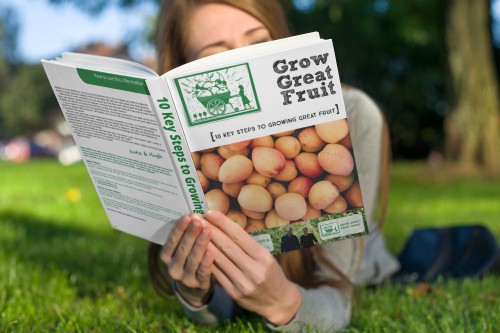The day we received this certificate was a very exciting day!
Related Articles
Animals, fruit trees, and electric fences
Animals and fruit trees go well together if you can figure out how to enjoy the benefits without the animals doing too much damage.
To mulch or not to mulch under your fruit trees?
Mulching under fruit trees is not as good as living understory, but has its place for young trees, or for mature trees if done correctly.
Warming winter cakes with home-grown fruit
Bake delicious warming winter cakes from the fruit you’ve grown on the fruit trees in your own garden for extra satisfaction.
It was the end of a long process. It officially started in early 2007 when we applied to NASAA for organic certification, but in fact, had begun several years earlier.
But we’re starting at the end…let’s go back to the beginning.
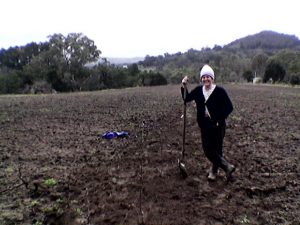
A series of events of unexpected events led to Merv (Katie’s dad) deciding to sell the family farm in 1998. Letting the farm leave the family suddenly seemed like a really bad idea, and so we put up our hands to come home and take over the farm.
Both of us had had farm experience; Katie grew up on the family farm (the whole family moved here from another farm down the road when she was 8), and though Hugh was a city boy by birth, he quickly gravitated to the country as a young man, and spent time working on and managing farms in Western Australia and Saudi Arabia. But neither of us had planned a career path that involved farming, and were doing entirely different things at the time. It was definitely a dramatic career change for both of us.
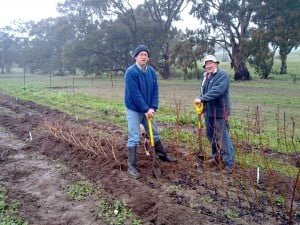
Thankfully Merv was happy not to sell, but to let us take over, and stay on to teach us the ropes. The first 3 years were essentially an apprenticeship, as we learned the ropes of farming in the way he’d always done it. Luckily, Merv has always been an innovative farmer (he was one of the first in the district to install drip irrigation, and to start the now common practice of fruit thinning), so while he taught us the (chemical) methods he’d learned and always used, he was also supportive of us taking the farm in a new, organic direction—as long as we thought we could make a go of it!
Our first, tentative steps towards organics were not the result of an ideological standpoint at all. We just didn’t like using chemicals, especially some of the nastier, broad-spectrum insecticides (which kill whatever they hit). It felt wrong, so we stopped using them, replacing them with ‘softer’ chemical alternatives—at that point we still couldn’t imagine farming without chemicals. The ideology came later, as we learned more, were exposed to new ideas, did some training, and put what we were learning into practice.
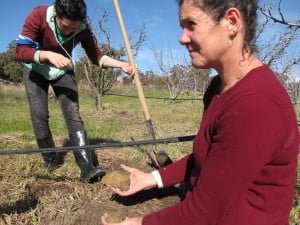
Noticing the changes that happened in the orchard when we removed broad-spectrum insecticides was probably the first significant shift in our consciousness. When we realised that woolly aphid (normally a bad pest in apple orchards) had completely disappeared from our orchards, while all our neighbours still had it, the first little penny dropped and we began to understand that by interfering in the natural ecosystem with chemicals, maybe we were doing more harm than good (it sounds pretty incredible now that this was a revelation to us, but it’s the truth!).
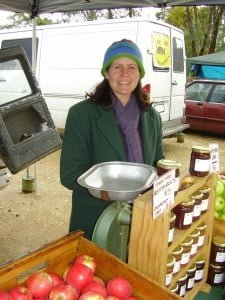
But it was still a long road from there. Even as we gradually thought more about becoming organic, and kept dropping more chemicals from our farming practices, we still had huge barriers to overcome (mostly in our minds) before we could seriously contemplate going all the way. We were coming from a fear-based position where chemicals were problem-solvers, and we couldn’t imagine how we were going to cope with the onslaught of problems we would be faced with if we stopped using them! How would we cope with all those pests ruining our fruit, all those weeds ruining our beautiful bare orchard floor, and how on earth would the trees get their nutrition, if we weren’t allowed to use fertilisers??? It all seemed too hard, and too scary.
There were two big things that happened next that helped us make the decision to apply for organic certification. The first was Hugh going to a talk called “Farming as if it mattered” by an inspiring American scientist called Arden Andersen, in February 2006. This really opened our eyes, and started us on a path of education, reading and training, that completely changed the way we think, and laid the scientific foundations for the way we farm today.
We learned about soil biology, natural fertility, making compost tea, and disease and weed management. Between 2005 and 2010 particularly, we did lots of training, learned masses, and really got switched on (finally) to the importance of soil.
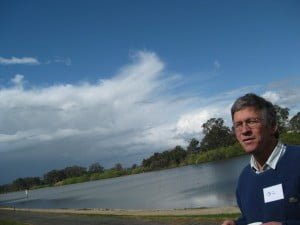
We also did courses on irrigation, cherry growing, whole farm planning, sustainable farming practices, calculating our carbon footprint, climate change strategies, carbon farming and permaculture, as well as doing lots and lots of field trips. It was a huge and exciting learning curve, and we continue to be committed to ongoing training or education every year.
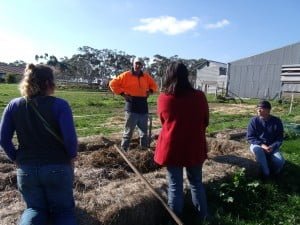
But back to the other big thing that happened to let us make the leap to organics. Our neighbour and organic mentor, Ross Forrester, the only other organic orchardist in our district, gave us his old swing-arm slasher, thereby solving the one problem we hadn’t been able to wrap our heads around—weed control. We’d come around to the idea of the value of having plants in the orchard rather than bare soil, but we knew we still needed to keep the height of the weeds down, and we only had a slasher that was pulled after the tractor, leaving long weeds in the tree lines, where we didn’t want them.
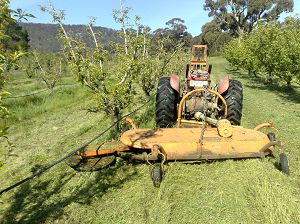
On a side note, unfortunately Ross and his wife Jenny have left the organics industry, one of many farming families to stop farming as a result of the drought. They were experienced organic growers and lovely people, and we were sad to lose one of the few organic mentors we’ve had, before or since (they’re very happily in a non-farming business now). We were lucky they were still in business at the right time to help us out, because as you can see from the photo, the slasher we got from Ross had an extra blade on a swinging arm on the left-hand side side that mowed right under and around the trees, and solved our last problem (or so we thought). There didn’t seem to be any more barriers….
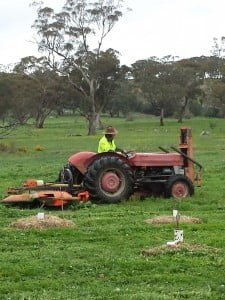
And so finally we applied to NASAA for certification in mid-2007, had our first inspection, soil tests and fruit tests in late 2007, and received our first ever Certificate of Registration in January 2008 confirming that we had passed the tests, and were officially In Conversion to organic production.
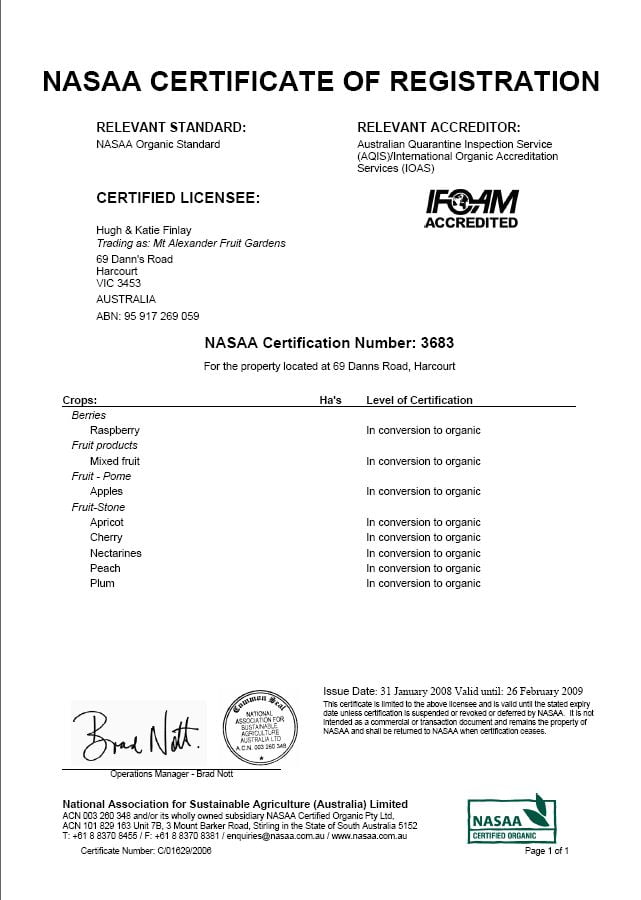
Next time…the million mistakes we made, and how to avoid them!
